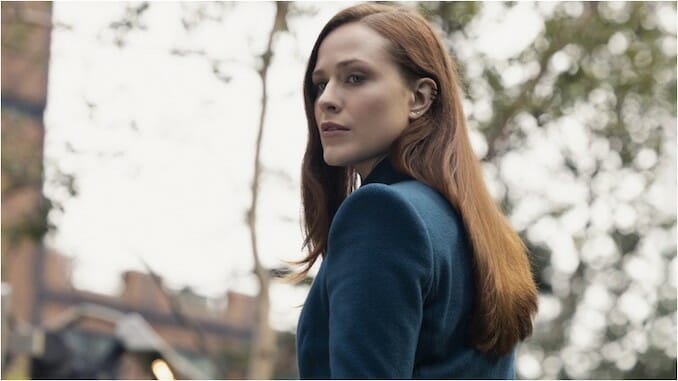Westworld Brings Itself Back Online for an Ambitious, Uneven, and Weirdly Promising Season 4
Photo: Courtesy of HBO
Few shows on television right now are as much work to watch as HBO’s Westworld. That’s not necessarily a criticism (at least not all the time), but keeping track of who’s human, who’s a Host, which timeline the story’s taking place in during any given moment, and whether or not the things you’re seeing are actually happening in the order you’re watching them can sometimes feel like a downright impossible task.
The fact that Westworld regularly takes two-year breaks between seasons doesn’t exactly help matters, either. Season 3 aired in the spring of 2020 in what often feels like a different world now, and it’s hard to predict how a show about humanity’s struggle to choose its better angels and break its worst habits will land in a time when we see so many around us failing to do either on a daily basis. Google may have accidentally made a sentient AI in recent weeks, and suddenly the idea of Hosts doesn’t necessarily feel so far away anymore. The world is changing, and while I don’t know that we’re outgrowing Westworld, we’re certainly being regularly asked to confront the idea that maybe the themes this show wrestles with aren’t actually terribly removed from our current day-to-day lives.
But Westworld itself is a series that’s in a constant state of evolution. The show we’re watching now bears little direct resemblance to the overt Western that was Season 1, and each puzzle box mystery the show has put forth in the years since has only led to more questions than it has ever answered. The new season is fully back on its bullshit in the way it both brazenly spins out new mysteries and openly winks at the fact that it knows its audience is trying to suss out what it all means (while remaining incredibly resistant to revealing any of its secrets.) It is happy to repeatedly drop hints that something isn’t what it seems, but also seems to revel in the fact that it knows it’s not giving you enough to figure out what that something is.
Honestly, you kind of have to respect the sheer nerve of it all.
Season 4 picks up seven years after the Season 3 finale, and the robot uprising that ended Dolores’s (Evan Rachel Wood) life, saw Host Maeve (Thandiwe Newton) and human Caleb (Aaron Paul) work together to destroy sentient AI Rehoboam, and supposedly ushered in a new beginning for humanity where they would theoretically be free to make their own choices. What we see is that while a scant few have seized this opportunity with both hands, most have essentially returned to their predetermined paths. Delos not only still exists, but the company is also apparently thriving; and—as many will have seen in the series trailers—has already built a new park, based on 1920s Prohibition-era America. (Which, not for nothing, also leads to several of the season’s most sly, self-referential, and self-aware moments.)
Maeve has gone off-grid, Caleb has started over, and the character played by Tessa Thompson—a corrupted version of the original recipe Dolores consciousness in a Host body of Delos exec Charlotte Hale —has become something (or someone?) entirely new, now with her own agenda. She’s assisted by an almost cartoonishly villainous William (Ed Harris), whose mission is murkier than ever now that he is presumably a Host himself and has seemingly jettisoned anything that ever felt hopeful about his character. There are seemingly multiple versions of several familiar faces on the canvas (maybe?), including Angela Sarafyan and James Marsden, while Jeffrey Wright’s Bernard and Luke Hemsworth’s Stubbs will have to deal with the fallout from the former’s trip to the Valley Beyond. Naturally, the show isn’t terribly forthcoming about any of these characters’ secrets (or even identities at various points), and the end result is a conscious blurring of the lines between what we expect humans and hostkind to be and do.